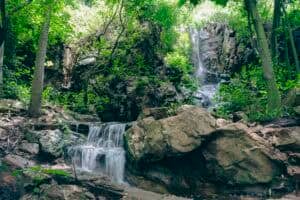Not all potential environmental impacts of the ships have been assessed or even understood, with 'extensive gaps' found in reports.

Although pleased by the Department of Environment, Forestry and Fisheries’ (DEFF’s) decision to refuse Karpowership environmental authorisations, an expert warned the decision can be appealed.
The surprising win for the planet was announced by DEFF on Thursday, after three of the project’s bidders were alleged to have provided misleading information on the potential environmental impact of the ships being docked at Conga, Saldanha Bay and Richards Bay.
ALSO READ: Environmental affairs blocks Karpowership’s ‘toxic’ advances
Attorney Michele Koyama from the Centre for Environmental Rights (CER), one of the organisations that requested an investigation into and suspension of environmental impact assessments (EIAs), said the Karpowership project cannot go ahead without environmental authorisation.
She explained that when the Green Connection complained to DEFF about authorisation for Saldanha Bay, it had to do with a noise impact assessment not ever being conducted.
“Without the assessment the department was unable to assess the impact of the noise from Karpowerships on fish in the area and in turn the impact on small-scale fisheries and their livelihoods.”
After this, CER pointed out the same deficiencies were present in its call to investigate the Richards Bay and Ngqura (Coega) projects.
Koyama said Karpowership SA could appeal the DEFF’s decision, a concern echoed by Dr Roland Ngam, programme manager for climate justice and socioecological transformation at the Rosa Luxemburg Foundation.
Ngam said on Thursday that although the DEFF’s decision was a win for the environment, it definitely was not the end of the road for the Karpowerships project.
ALSO READ: Are powerships right for SA?
“I am very certain they will try and come back. There will be lobbying… in the background now, with different levels of government to either do a different set of EIA studies, or to get people to come lobby and get their deal through. This is certainly not the end.”
What Koyama also found worrying was the fact that no potential environmental impacts of the ships had been assessed, reported or even understood, with “extensive gaps” found in reports, she said.
“This is in addition to the concerns about the climate impacts of these projects (burning fossil fuels for electricity), as well as impacts on marine ecosystems in the area and the livelihoods of the communities dependent on fishing.”
The deal made with Karpowership meant South Africa would have been locked into another toxic fossil fuel deal, as liquefied natural gas (LNG) is made of methane, a greenhouse gas 86 times more potent than carbon dioxide, Just Share executive director Tracey Davies and climate change engagement director Robyn Hugo told The Citizen in March.






